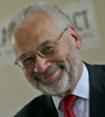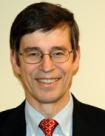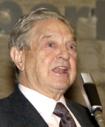The PASOS Advisory Council was launched on 7 May 2009, the day of the summit launching the European Union’s Eastern Partnership initiative to deepen EU relations with six neighbouring countries. The three founding members of the Advisory Council were George Soros, the founder and Chairman of the Open Society Institute, Erhard Busek, former Vice-Chancellor of Austria and Special Co-ordinator of the Stability Pact for South Eastern Europe, and Johannes Linn, Executive Director of the Wolfensohn Center for Development at the Brookings Institution and former World Bank Vice President for Europe and Central Asia.
The Advisory Council is not a formal governance structure, but comprises a number of outstanding figures of integrity who share the values of PASOS, and have relevant public policy experience and/or a strong connection to the democratic transition process facing countries in the PASOS region of Central and Eastern Europe and Central Asia.
The Advisory Council does not formally meet on a regular basis, but the individual members of the Advisory Council support PASOS in a number of ways, including:
- extending their advice to PASOS on major issues of international policymaking of relevance to Europe and Central Asia,
- lending their names to PASOS advocacy initiatives with a regional or international focus,
- from time to time speaking at public events organised by PASOS and PASOS members.
 Erhard Busek
Erhard Busek
Austria
Tel: +43 1 319 72 58
http://www.idm.at
Erhard Busek was Vice-Chancellor of Austria from 1991-1995, Minister of Science and Research from 1989-1994, and Minister of Education and Cultural Affairs from 1994-1995. From 2001-2008, he served as Special Co-ordinator of the Stability Pact for South Eastern Europe, and since 1996 he has been Coordinator of the Southeast European Cooperative Initiative (SECI). In 2000-2001, he was the special representative of the Austrian Government on EU enlargement. He is Chairman of the Institute for the Danube Region and Central Europe, and President of the European Forum Alpbach. He is also Chair of the Board of Trustees of Erste Bank Foundation, which operates in Central Europe and the western Balkans. Since 2004, he has been the Rector of the Salzburg University of Applied Sciences. In 2009, he served as an adviser to the Czech EU Presidency.
 Johannes Linn
Johannes Linn
United States of America
Tel: +1 202 797 6000
http://www.brookings.edu
Johannes Linn has been the Executive Director of the Wolfensohn Center for Development at the Brookings Institution since 2005, and was World Bank Vice President for Europe and Central Asia from 1996-2003. He focuses on international development and global governance issues, and is engaged in research and advisory work on global governance, on transition issues in Central Asia, and on aid effectiveness. During 2004-5, he also served as Project Leader and Lead Author for the UNDP Central Asia Human Development Report (December 2005) and currently is Special Adviser to the Central Asia Regional Economic Cooperation Program (CAREC). He edited (with Colin Bradford) Global Governance Reform: Breaking the Stalemate (Brookings, 2007).
 George Soros
George Soros
United States of America
Tel: +1 212 548 0600
http://www.soros.org
George Soros is Chair of Soros Fund Management LLC. He was born in Budapest in 1930. He survived the Nazi occupation and fled communist Hungary in 1947 for England, where he graduated from the London School of Economics. He then settled in the United States, where he accumulated a large fortune through an international investment fund he founded and managed. Soros has been active as a philanthropist since 1979, when he began providing funds to help black students attend Cape Town University in apartheid South Africa. He has established a network of philanthropic organisations active in more than 50 countries around the world. These organisations are dedicated to promoting the values of democracy and an open society. The foundation network spends about $450 million annually. Soros is the author of ten books, including most recently The Crash of 2008 and What It Means. His articles and essays on politics, society, and economics regularly appear in major newspapers and magazines around the world.
